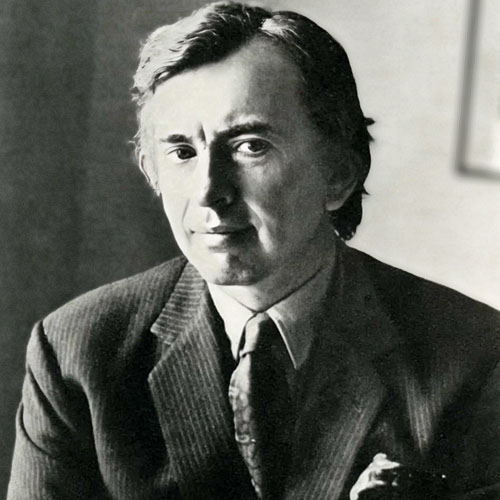With 34 million bureaucrats and only one million self-employed persons, no wonder nothing works!
The Political System Has Failed
Political truth lies to us. Politics has been dead for many Americans, for many years.
It has been replaced by rooting, the sort of rooting that we do for our favorite sports teams. People root for a winner and they assume that no matter who wins, nothing much will change. We don’t try to change things anymore — there is a resigned feeling that nothing can be changed. And so, politics becomes just another form of being a fan, a rooter, part of a side lines cheering-section for someone whose style — or color or powerful roaring motor or smooth hum — pleases you best. As with automobiles, we all understand that the differences are superficial. So we root for favorite cars — or favorite leaders.
The course of political life, meantime, is unchanged. More power flows to Washington. More debts flow to the people. Life becomes a bit seedier for most people. The leaders become more flamboyant, if not in social style, at least in the exercise of power. Humble looks cannot hide that imperial fact. Ford or Cadillac — they both have more accumulated power under their hoods than ever before.
But most importantly, it all does become a matter of leaders. Who wins or loses the various leadership contests is what counts. Because nothing else seems to change — except to get worse, flatter, more troublesome, costlier, less fun, more tense, less convivial, more compartmentalized, less together, more fragmented.
Real politics, in the classical sense, is the negation of all that. Politics should be the way in which people in a social setting make regular adjustments in their relationships in order to make orderly changes in the way they live together. If all people practice politics there is said to be a democracy. If only one person or a special group of persons practices politics it is said to be a monarchy or dictatorship. The practice of politics that uses the rhetoric of democracy simply to institutionalize the practice of monarchy or dictatorship is exactly the sort of development in which the politics of the public becomes simply the practice of the cheerleader, the spectator. Everyone has a right to root. Only a few have the right, or the access, to rule.
When politics withers into a spectator sport, it dies in a special way: what replaces it is leadership autocracy. Some people are relieved about this: the “silent majority” may well find silence a comfort. It certainly is undemanding. For some, obedience is easier than initiative and self-reliance. Erich Fromm refers to obedience as an “escape from freedom,” which is often preferable to that hardest of all social work — being a free, responsible, and fully political person; a participant, not a spectator. It is so much easier merely to have opinions and exercise free speech, than to have freedom of action and have to exercise real choices and to be responsible for them.
This is the most basic political issue that exists today. It is basic because it asks simply whether people will manage their own affairs or whether their affairs will be managed for them. It is actually more basic than what is done in the political process. It defines the process itself. The means, in politics, are the ends.
The problem really isn’t — or wasn’t — Richard Nixon or Lyndon Johnson or John Kennedy at all. The problem is the presidency itself and the sort of totally dependent, top-down, kinglike sort of politics that the office has come to embody and that the country has had to endure.
To a terrible degree the heavy weight of this sort of politics has already obliterated the ancient urge to “be yourself.” Conformity and obedience are the values that for some have replaced the old-fashioned American value of self-reliance.
For millions of Americans, loyalty to the president has become a full measure of their identity. Loyalty to a ball club, a brand of automobile, or even a deodorant is seriously used as a point of identification by other Americans whose grandparents would never have settled for any lesser identifying traits than honesty, craftsmanship, tenderness, and so forth. But those values come from inner sources. People today who are colonized by the steady drone of political rhetoric, the fantasies of television, and the by-the-book drills of schoolwork always appear to look outside themselves for values. That is where, they are always being told, the values originate.
Of all those outer sources, the presidency is the most visible. From the presidency comes the definition of the national will. From the presidency comes the vicarious glory of the nation. For many, basking in the light of the president has become what is actually meant by citizenship. Even those who oppose the president during elections contrive a handy excuse for joining the loyal throng after the election. Now, they say, we must all rally behind him. Notice where he is and where we are. We are always behind.
But what happens when the area behind the president is not resplendent with glory? What happens when it is a place of confusing tides and eddies, of vicious little whirl-pools and even quicksand?
Some say that what happens is disaster. Better even a corrupt president, they say, than any confusion that would weaken the presidency. Without the power and strength and glory of such great institutions, they say, we the people would be lost.
But there is another view. Without the great institutions, this view holds, the people would have to start to rely on themselves, and this would result not in confusion and chaos and collapse, but in the rebirth and reconstruction of the original American dream of a self-reliant people, freely cooperating with their neighbors to enhance the general welfare and make life worth living.
Usually, this type of discussion seems far from practical. Only in the most extraordinary of times would things be so bad that we might actually have to face up to such seemingly shattering issues as whether we need a president, whether we have to choose not just who is going to boss us, but whether we want to be bossed at all!
We may be living in such a time.
Everyone must be their own researcher at such a time, carefully noting the signs at hand, not trusting earthshaking statements without local verification, without common sense.
Today, the local verification, so to speak, is growing increasingly apparent. People are becoming fed up not just with details of the way they live, but with the entire fabric of their lives, including the way they work, play, relate to other people, live, eat, sleep, learn, and grow.
The most telling evidence of this is the public discussion of the presidency. It is not just a particular corruption that is of concern: this time the concern is far more basic.
One place to observe it is in the mail being received in Congress, mail that is both increasing in quantity and narrowing in the focus of its concerns.
And there is no better summary of those concerns than in a statement earlier this year by the senator from Idaho, Frank Church.
“I have never seen the mail so sour,” he told an interviewer. “People have no more faith in the administration or in Congress — they feel they have nobody to look up to.”
How revealing! Naturally enough, a senator would feel that having someone to look up to would be the most important need of an American. Others might have thought that being the sort of honest and loving person to whom others could look with love and respect would be good. Or best of all, and most ancient of all, it could be said that self-respect would be a cardinal virtue. But no. To a proper member of the class of people who deal in power, to a senator, the lack of someone to look up to is a reasonable explanation for the growing discontent of Americans.
But the sour mail is evidence of deeper pains. Perhaps it is the beginning of the end for the system of top-down pyramids of power and the beginning of a time when people will stop looking up to others and start looking to themselves. At least now there is the possibility of raising basic questions about the way we live. And there is evidence that increasing numbers of people are doing just that.
The basic question is whether the way people live will grow from their own actions and communities or whether it will continue to be dictated to them from on high.
“Centralization of power seems to work well only in the criminal world.”
This question filters through every part of our everyday lives: are we going to let someone else live our lives, define our choices or our terms, situate us in relation to our neighbors and the world, and even form our dreams?
Young children face this problem everywhere. Most are thrust early into schools that treat them as either prisoners or wild animals. Public schools tend to enforce the prisoner role, with rules and regimentation being the education offered. Supposedly innovative private schools mostly take the wild-animal position, internally organizing around the proposition that children, like little foxes, should be encouraged to live as in a jungle, totally without the intervention of older members of the species and with as little relationship as possible to any sequential thinking involving a history or duration of more than six seconds. This so-called permissiveness is as confining and as stultifying as the rote regime of the other schools. The one says that the child must yield absolutely to higher authority. The other says that the only authority is other children. Neither permits participation in reality, which includes the give-and-take of human community and the experiences of human diversity. Both start the process of screening the world down to the one-and-only-way-to-do-things sort of clockwork mechanism which inevitably is wound by the key of some single authority.
The ex-prisoners of the public schools may favor and fanatically support the single-authority of some “official,” probably the president (either of the U.S. or of the company that he serves). The permissively brought up young animals, turned to larger beasts, will continue to chase manifestations of their peer group. Rock stars can be such manifestations. So can gurus. The real peer group for both of the sects actually is the same: all those who see life solely in terms of leading or being led.
Working-age people, certainly including those who go to university-level vocational schools, experience new dimensions of the problem. The almost daily crises in their lives, crises of work and wages, are never subject to real solution but only to circumspect compromises with “the system.”
The system, in turn, is nothing less than the problem itself: the assumption that the possibilities of human life are strictly limited to either giving or taking orders. In short, the right of the boss to give the order is never questioned, or at least not seriously. The only thing questioned is whether, in the exercise of that apparently inalienable right, the boss can be forced to bend a bit.
Every aspect of very modern American culture screams for obedience to this proposition. The highest praise reaped or sought by most people is to be a “team player.” And every man, woman, and child knows full well that every team has a coach. The team player, when all is said and done, is not the player who cooperates with the other players. The team player is the player who simply takes orders.
Productive life, like political life, is organized almost everywhere in the world — in both capitalist and socialist states — in a strict pyramid-shaped structure. Increasingly, that structure is composed of compartments in which individual workers not only are powerless to control their own work but are even powerless to see the whole process. The pyramid is rigorously and deliberately divided into smaller and smaller task compartments, not for the purpose of making better things, but for the often explicit purpose of assuring better control.
Control, as a matter of fact, has become a galloping symptom of the herding of people into dependent roles. More people, particularly in America, are being employed simply to watch over, control, supervise, or otherwise manipulate other people. In effect, they make nothing but rules.
There are thirteen million government workers in America. That means that more than one out of every five working Americans has a government job and those jobs, in turn, are overwhelmingly — almost exclusively — concerned with controlling, rather than producing for, citizens. On top of that the number of foremen, supervisors, clerks, and policemen in private industry and business is obviously increasing, as administration becomes one of the major “work” categories of our time.
For instance, in 1950 there were fourteen million persons classified as clerks, managers, officials, or proprietors, while twenty-two million were classified as people doing real work — producing things, growing things, fixing and maintaining things. In 1970, the clerk-managers had risen to more than twenty-one million while the number of productive workers fell to eighteen million. And just in case there is some notion that the rise in the number of supervisors somehow reflects a rise in good old Yankee independence, with more and more people becoming their own bosses, forget it. The number of self-employed people declined from about five mil lion twenty years ago to just about a million today. That, too, is part of the spread of dependence in the population.
This is not the sort of dependence that is ordinarily found in a community, the interdependence of neighbors. The sort of dependence reflected by the rise of the administrators is the dependence of someone lower on someone higher, the top-down dependence so richly reflected in Lyndon Johnson’s memorable statement that the people “are like children,” depending upon a strong president to show them the way, or in Richard Nixon’s similar statement that people are “like the children in a family” with, naturally, the president as the father.
President Nixon’s remark is the more interesting because it is the more ironic. Nixon, it may be rec al led, before the many revelations of his own leechlike attachment to the welfare payments of wealthy friends, spoke a mighty rhetoric of independence and self-reliance. There was even a time when his famous remark about the children in the family was interpreted by staunch conservative supporters as meaning that children should be given responsibility, the children in this case being the citizens generally. But there is a significant difference that did not seem to occur to the president-father. Children, being in many instances totally dependent upon grown-ups (not even the most fanatic permissivist has yet shown how an infant can feed itself), may indeed be “given” responsibility. As Nixon could have been saying, children do respond to being given responsibility, with many of them discharging it admirably. Citizens, on the other hand, “have” responsibility. It takes a very special reading of politics to say that someone, particularly a specific someone such as the president, can “give” them responsibility, as Richard Nixon seemed to be saying he wanted to.
What presidents have been mainly doing throughout the 20th century is something altogether different. They have been, without exception, involved in a very rapid process of taking away the responsibilities and civic space that citizens once had as an automatic condition of their citizenship.
But the president is only the most visible thief of those rights. Actually, the entire political process has been involved. Just as in the productive process, the political process not only has been arranged increasingly as a pyramid, but has been made more compartmentalized as well.
The most common experience people have today with bureaucrats is that they cannot, try as they might, find anyone who is responsible. The buck is always passing, the phone is always on hold, the proper form is always in some other message tray.
At the rhetorical level, of course, it is altogether different. Politicians boast that they are, in fact, responsible for everything! Feast, famine, health and sickness, safety and peril, fire and flood, all are said to be caused by or prevented by political decision or, more exactly, specific political personalities.
From this has arisen a confusion or contradiction, which is widely felt, if not widely discussed.
On the one hand there is the undoubted success of years of general indoctrination of the belief that “the people up there” are the people who make everything, good or bad, happen. This has created, for most of us, the unbeatable, inexorable “system” that is said to be absolutely necessary overall, no matter how debatable in any particular instance. The system, it is said, can be made to work better, but it can’t be changed. Without it, nothing would work.
On the other hand there is this obvious and increasingly overpowering fact: Nothing is working!
The claimed efficiencies of scale, the conventional wisdom that says that bigger is better and that someone has to run things, are crumbling in failure after failure.
We might look at it this way: the tendency throughout this century has been to concentrate more power in fewer hands. In the political area this has led directly to today’s almost universal disillusionment with politicians and the political process. Also, the boasted political schemes that were supposed to make bigger cities better, that even encouraged megalopolitan combines of governments, have resulted in big cities that are falling apart. In the industrial field, the largest of all corporations, General Motors, distinguished itself recently by having to recall just about as many vehicles as it built. Also, the technologically backward, foot-dragging nature of the largest manufacturing units — steel and autos, for instance — is well known throughout the public. People have come to expect that the bigger the corporation, the more unimaginatively unchanging will be its products and processes. Small companies have become the innovators (after which they are gobbled up by the dim-witted giants).
Only in crime has centralization of power seemed to have worked well. It achieves its stated purpose — the aggrandizement of the fortunes of the people at the top. And that’s just it: centralized crime is seen as a success because its purpose is well understood, a rip-off of the many for the benefit of a very few. If that purpose, and only that purpose, is seen to be the goal of politics and industry, then central control there is successful also. But if the goal is the benefit of the many, and particularly the benefit of the people who actually do the work, then centralized power in both politics and industry can only be viewed as a failure.
So powerful has been the presidential sort of top-down, big-is-better thinking, that the collapse of the big institutions might well leave many people simply confused and paralyzed, rather than energized to do the commonsense thing, which would be to replace the failed “bigs” with vital “smalls” — small neighborhoods, small manufacturing, small towns, small businesses, small farms.
Nowhere is the virtue of small-scale operations more evident than at the level of the supposedly most complicated manufacturing processes — that of electronics and computers. The production facilities that have dominated the growth of both of these areas have been characteristically small and easily decentralized. And everywhere within these fields there is a dynamic characteristic of all modern technology — a dynamic of growth toward smallness. The transistor is a clean-cut, simple gem of an invention compared to the cumbersome vacuum tube. To make it requires a lot of skill and knowledge but not a lot of space or even as many materials as does the vacuum tube.
Computers have been growing smaller every year. And they have been internally decentralizing as engineers discover that self-reliant parts or processes in the computer are better than reliance on central, massive systems.
“Recent American presidents have not been working people… They have been essentially noncreative.”
This leads us to a question of incalculable significance: What is the purpose of production? The purpose of production so far, both here and in the socialist nations such as the Soviet Union, has been to advance the power of the people in charge. American capitalists say repeatedly that they are in business to make money. The products they build to make that money are secondary. They switch, change, cheapen, elaborate, chrome, bejewel, scent, or sometimes even improve those products for one purpose: to make more money. Markets are created, as opposed to meeting real needs. And is the making of money, as some glibly say, a purpose that benefits us all?
The plain statistics say otherwise. The major benefits from the money made in industry are distributed upward, not downward. The share of wealth held by the upper fifth of the population has been increasing over the years. The share of the lower fifth has been declining. The middle has stood virtually still. But even more significantly, the ownership of industry itself has been moving steadily into the hands of fewer people. Today, almost 90 percent of the common stock of American industry, the controlling stock, is held by less than 2 percent of the population. So the purpose of industry is to serve less than 2 percent of the population.
The situation is similar under centralized state socialism. The purpose of production is to consolidate or advance state power. The state, in turn, is the bureaucracy of the leaders. It is not something intangible and abstract; it is, rather, the organizational reflection of the concrete interests of the people who hold and wield power.
The so-called New Left rebellion that keeps cropping up across the world — massively in such rumblings as in China, poignantly as in the case of the radical peasants and workers who considered the Marxist Salvador Allende to be a middle-of-the-roader, hesitantly as in the case of American rank-and-file worker groups who seek not higher wages but an end to the wage system itself and the institution of a shared, cooperative economy — all of this truly radical talk is centered on the question of the purpose of production. The radicals say that the purpose should be to enhance human life generally. Old-line leftists and capitalists say something quite different. They say that the purpose of production is “progress” (growth of capital accumulations) or “progressiveness” (growth of state power).
If the answer to the purpose of production is enhancement of human life-its quality, not just its quantity-then it could be argued that a beehive or an ant-heap is no place to achieve it.
Both the hive and the heap have as their purpose the sheer survival of the group. They are fine for bees and ants, apparently. Some people even feel they would be fine for humans, as in the visions of such men as B. F. Skinner, with his world in which every human would fill a socially rigid niche, do a certain thing, get his kicks from being a useful cog in a machine, abandon any notion of separate personality, and grin his or her way to the grave.
Others make the point that human beings are different from ants and bees and that nature itself, far from establishing a repetitious sameness among natural species, deals in infinite variety and change.
What nature does not deal in is universal hierarchy. Inside the hive there is a static and rigid structure. But throughout nature there is infinite variety, experimentation and, ultimately, absolute equality, with the death of Peruvian anchovies being every bit as critical as the deaths of great human leaders.
Humans have the added diversity of personality and individual senses of themselves, their place in the world, of work, love, pleasure, pain, discovery, excitement — of everything. Humans are not better. They are different. To tie human diversity to the plans of any tiny group of humans within the species seems to run counter to the sort of common sense people display in ordinary life.
Yet, culturally and politically, people have been giving up their good common sense over the centuries and agreeing to let their lives be totally dominated, even defined, by the desire of very few people indeed.
Should they? Need they?
This brings us back to the president of the United States. No matter what the Constitution says about the president being merely the chief executive or administrator of the government, the president actually is a king. Most Americans fully understand this. Senator Hugh Scott has called the impeachment of the president “regicide,” the killing of a king. Some, those who call themselves the silent majority, say that, in effect, they want the president to be a king, to have absolute power and not be subject to restrictions. Many of them feel this way about the police. Many also feel this way about millionaires. Any restrictions against the president, the police, or the millionaires would mean turning things over to — whom? The silent majority says that it would mean turning things over to a mob. Such people seem to feel that the natural order of things is for a few powerful people to run things. That’s just the way things are, they seem to be saying. That’s just the way things always have been.
This argument is so weak as to warrant instant dismissal. Humans could not fly until this century. The fact that they never had didn’t mean they never would. Most people died in their thirties not so long ago.
All well and good, the power worshipers might say, but the rule of a few hasn’t changed.
Not so. Frontier America was amazingly decentralized. The power of the central government was on a short leash indeed. Local tyrannies did develop, of course, and the difference between a little king in a little town and a big king isn’t much to the people directly affected — except… except that the smaller the realm of the tyrant, the easier to escape it, the less capable the tyrant is of branching out, the more he is liable to be overthrown. But along with the local tyrannies that did develop in frontier America, there also developed a form of social organization that abolished the king altogether, and installed the people as masters of their own lives. The form was the town meeting, government by assembly, by consensus — the neighborhood as the center of political power rather than the nation.
There is a familiar and supposedly liberal argument that attacks early American ideas of decentralization by claiming that under such ideas the Indians were slaughtered and the blacks oppressed. The argument is weird. In the first few years of the Republic, with decentralized power more the rule, there were striking detentes with and respect for Indian territories and culture. The systematic oppression of blacks also was the product of a later era. In the colonial, decentralist era, but not in the later federal era, there was far more cultural and racial tolerance. Southern lynch law grew from southern, centralized political power in which wealthy, slave-owning landlords, in particular, were specifically protected and even abetted in their abuses by state and county governments and law. And the Indians, of course, were finally subjected to genocidal slaughter and oppression, not by some raggedy bunch of cowboys and farmers but by that most centralized of nationstate agencies, the army.
There is, as a matter of fact, little evidence that central power has in the long run served the purposes of liberation for anyone. Even in the case of today’s blacks, supposedly liberated by the various Civil Rights Acts, there is ample evidence to support a revised view in which it was the local efforts of blacks themselves that turned the rhetoric of liberation into at least a beginning of hope.
Those who claim today that there must be leaders — single, totally powerful leaders — are the ones who are making a radical departure from the American revolutionary tradition. Yet the people whom the police most actively chase as revolutionaries are those people who favor self-reliance and who most resist or even attack the power of the central controllers. Example: the FBI is the pol ice of the nation-state and the federal government. It has become, as a matter of fact, the president’s own police force. It is, as such, a radical distortion of American tradition. Yet while posing as a defender of American values, it systematically harasses people who are working for political freedoms. Recent revelations, of course, show this harassment to be quite deliberate and includes the planting of troublemakers in political groups, the use of forged documents, and even the instigation of violence.
The point is that history is made by people. Many of the people who made the history of the American revolution tried to make a decentralized society in which power would stay with the people and be jealously withheld from officials. The people who are making today’s governmental history have reversed that.
The president today is a person unlike most Americans. His ambition is power. The ambition of most Americans is self-satisfaction, exercise of craft, enjoyment of leisure, familial and community warmth.
Recent presidents have shown another characteristic. They are not working people. They have no craft. They have been essentially non creative, but ambitiously consumed people. John Kennedy was said to have a nice gift for language, but his ghost-writers are about as famous as his prose. Johnson, although he briefly taught school, spent his life mainly in manipulating other people. Nixon has done nothing but seek power all of his life.
But that’s the kind of person who gets ahead in this world, the silent majority says as it kneels before its king, the president.
True enough, a world like this elevates people like that — so we really need to change the world, not just the title-holders.
Nature is also demanding it. The earth itself has a limited and now sensitive ability to sustain the blunders of the plunderers. To survive as a species we need to act more like human beings, with a sense of our own worth and responsibility, than ants with a sense only of allegiance to the head and the queen.
“People who say they have no time to participatory government are saying they have no time for freedom.”
The human mind, which has conceived the affronts to nature committed so far, is also the only means to conceive the ways to ameliorate those offenses, to make the earth right again. And human self-consciousness would seem to be the only way of conceiving a new world in which the kings are gone and the creative, working, loving, cooperating people can save their own lives and enrich instead of impoverish the earth.
In this struggle these might be guidelines: Human political organization, to remain human and to assure the purpose of enhancing the lives of the community rather than the fortunes of the rulers, must be participatory instead of merely representative. As in the town meeting, a political decision should be made by all of those affected by the decision. When people delegate their political rights of decision to those who are supposed to represent them, they give up their political rights. The act of delegation is deadly in a representative system: the representatives alone have political power all the time; the people only have some political power some of the time — election time — and then only in the limited choices provided by mass, partisan political systems.
People who say they have no time for the constant involvement in everyday affairs that town meetings and participatory government imply are saying that they have no time for freedom. Once it might have been said, “Well enough, let them have tyranny.” But tyranny over humans is an attempt at tyranny over nature as well, and the massacres of the tyrant are reflected in the actions of bureaucrats who turn rivers into sewers and in the erosive greed of the accumulators who turn fields into wasteland.
In every human enterprise, every person involved should be involved in the purposes of that enterprise, in decisions affecting it, in its innovation or limitation — in every phase of it. To have engineering decisions made by managers, to have psychologically sensitive decisions made by bookkeepers, to have bookkeeping decisions made by rich heirs, and so forth, is intolerable if human beings are to fully realize their potential.
There are no practical limits to ordinary ingenuity, the potential for self-responsibility, or the rewards of cooperative life. Some of this ingenuity, of course, can bring a leader to the fore. In a healthy human community the extra efforts of such a person surely would be respected. But they need not be institutionalized, formalized, or perpetuated into nonrelated areas.
Thus, a great carpenter might well be a leader in building a certain structure, but not in performing brain surgery or in making a decision that affects every person in the community. Also, there might be people whose personalities are such that other people will respond favorably to their suggestions. In a healthy human community this would be taken for what it is worth — a pleasing trait, but nothing more — and the mistake would not be made that personality assures wisdom or permits the luxury of letting the personable make decisions that should face the test of community view and community common sense.
Even if all this busy cooperation and neighborliness worked locally, however, how could it deal with the world at large? Of course, the human community, although its most practical base is in the place where people know one another best, is worldwide as well. Communities, regions, areas — all touch other regions and areas. Basing decision and power in local areas would not abolish desires to communicate or exchange. Nor would it abolish certain physically mutual concerns as those of all the communities along a great river or in the same mountain range.
Politicians and the nonproductive rich have dominated the earth for a long time, as did the dinosaurs. But, like the dinosaurs, they have stripped the plants and scattered the beasts and stand exposed before a new climate of necessity, human necessity.
Like the dinosaurs, they must pass. This age, the age of seemingly unlimited scientific discovery, of universal communications, this age of nature’s crying need for an earth healed and respected, this age is not their age. This is not the age in which the great consumers, of power or of the earth, can be supported. Nature herself rebels and will not permit it.
This must be the age, instead, of the creators, the workers, the crafters, the explorers, the growers, the singers, the sharers.
The shop of the inventor must replace the mouldy mansion of the coupon clipper.
The open debate of the assembly, the neighbors meeting face to face, must replace the sweaty, shifty-eyed conniving of the politicians.
The helping hand of the friend must replace the grasping hold of the welfare bureaucrat and the supercop.
The productive facilities of the productive people themselves must replace the resource- and human- wasting tedium of the assembly line.
It is up to people, using their minds and the common sense in which the healthy mind deals. It is up to us — to you, to me, to us together — wherever we live to make this new age and end the age of the parasitic leaders.
It probably will not happen in a blaze of violent force, at least not here. The presidency will not be abolished by overthrow of the office, but by being ignored. We must ignore the regular political process except where and when it can be of direct use in creating space for experiments and alternatives.
These experiments and alternatives — the community moving toward a town meeting, building its own productive facilities or taking over older ones just as uninhibitedly as in the past it took over land for a municipal golf course; the farms springing up on the edge of or even in the cities and dealing directly with a community; the community health clinic; the co-op stores; the endless variety of innovative and participatory things that Americans are doing to repair the mistakes of the millionaires and the politicians — all these things will, eventually, abolish the need for the president and eventually the nation-state itself.
That is far off, of course, But the process has begun. People are taking this bit and then that bit of their lives back into their own hands. Each time they do it, they move toward their neighbors and away from the president.
Once upon a time the revolutionary cry was “Workers of the world, unite.” But tragically, much of the unity was achieved not by workers but by political leaders and within political parties. Today the working people of the world, all the creative, productive people have a new need to act. But perhaps the cry this time will be, more accurately, “Workers of the world, communicate!”
Start talking to your neighbor.
The president, the politicians, the silent majority will try to tell you you are foolish and wasting your time. But that’s all right. They are part of yesterday. Tomorrow is yours, not theirs. If we start today….
It may be difficult to believe that this editorial appeared in our magazine 50 years ago this month. It could have appeared last month and sound perfectly contemporary — which should be more than a little frightening, actually. Some might argue given the current Presidential campaign, particularly one of the nominees (although that identity depends upon in which side of the aisle you put your chair), things have only gotten worse. We offer, then, perhaps some solace in history. … Turns out we’ve pretty much always been wackadoodle. So that’s good. Right?
























